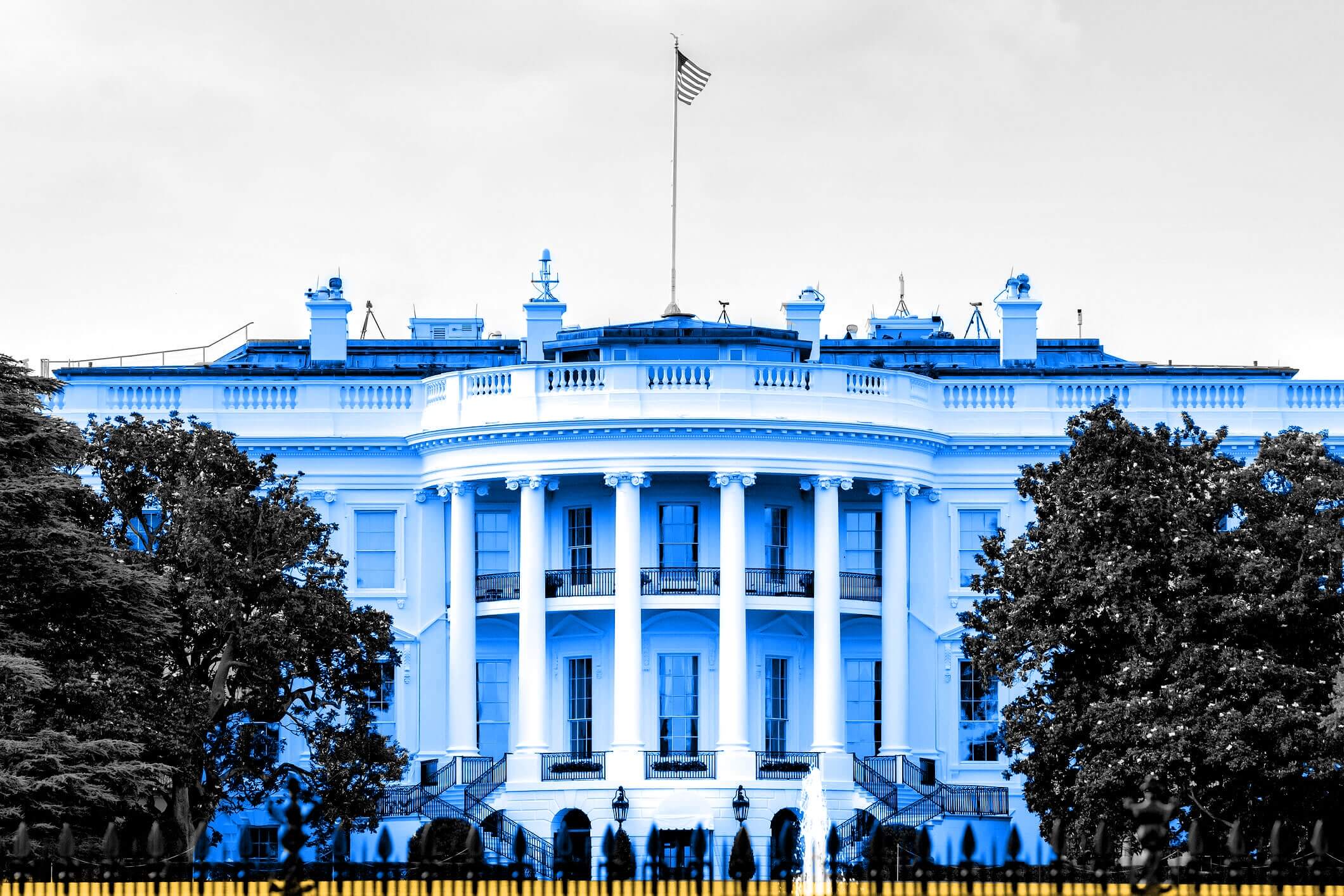

Presidents are much more than the policies they back or the speeches they give — sometimes they put out fires in the Library of Congress, popularized ice cream Stateside, or were nationally ranked wrestlers. Below are 20 strange and fascinating facts about America's first 20 Presidents.
George Washington

While every acting President serves as the commander-in-chief of the U.S. military, nobody will ever outrank George Washington. He was posthumously given the rank of General of the Armies of the United States, sometimes compared to being a six-star general. Although General John J. Pershing also held the title for his service during WWI, when President Ford appointed Washington in 1976 — 200 years after Washington’s heyday — he specified that our first President would always rank first among all Army officers past and present.
John Adams
The Boston Massacre, in which British soldiers shot and killed five citizens, was a major flashpoint on the road to the Revolutionary War. When murder charges were brought against the soldiers, John Adams acted as their defense lawyer. He called the trial one of his most “gallant” and “disinterested actions of my whole life.”
Thomas Jefferson

When Jefferson sent Meriwether Lewis and William Clark out west to explore the Louisiana Territory in 1804, the President told the explorers to watch out for mammoths. Jefferson was apparently obsessed with mammoths and was convinced they were still alive, gallivanting in America’s wild west.
James Madison
James Madison and his wife, Dolley, helped popularize ice cream in America. Tastes in the treat, however, would be considered questionable today: chestnut, asparagus, and parmesan were all on the menu. Dolley’s favorite flavor was … oyster.
James Monroe

While George Washington gets all the credit for bravely crossing the icy Delaware River in 1776, Monroe deserves attention too. Then-Lieutenant Monroe was part of an advance unit and crossed the river before Washington’s crew. On the other side, Monroe was wounded at the Battle of Trenton, as Hessian soldiers shot him in the shoulder.
John Quincy Adams
The election of 1824 saw four viable candidates, none of whom won an outright majority of electoral votes. Andrew Jackson nabbed 99, John Quincy Adams won 84, William H. Crawford earned 41, and Henry Clay claimed 37. Despite having neither the highest number of electoral or total popular votes, Adams was chosen as President by the U.S. House of Representatives.
Andrew Jackson

In 1835, Jackson received a present at the White House: a 1,400 pound wheel of cheese. It sat around idle for two years until Jackson, sick of the cheese, invited 10,000 visitors into the White House to get rid of it. As one resident recalled: “The air was redolent with cheese, the carpet was slippery with cheese, and nothing else was talked about at Washington that day.” Another called the event, “an evil-smelling horror.”
Martin Van Buren
Having grown up in a Dutch-speaking community in New York, Van Buren was the only President whose first language was not English. Although Van Buren worked hard to mask his original tongue, observers claim his accent would surface whenever he became visibly excited.
William Henry Harrison

When a pesky newspaper claimed that Harrison sat in a log cabin and swilled hard cider all day, Harrison didn’t fight the libelous claim. He embraced it. Supporters started calling him the “Log Cabin and Hard Cider candidate” and handed out cider and specialty bottles of booze shaped like log cabins. (Supporters even composed a song for him called “Good Hard Cider.”)
John Tyler
According to Smithsonian, Tyler was “the only president to commit a public act of treason against the U.S. government.” Sixteen years after leaving office, Tyler embraced Virginia’s decision to secede from the Union and was elected to the Confederate Congress. He died before taking a seat with the Confederate government, but the damage was done: When Tyler died, President Lincoln reportedly refused to lower the flag at half-staff.
James K. Polk

For two days a week, any Joe Schmoe could walk off the street and visit President Polk in the White House for an evening reception. These “office hours” weren’t very productive, though. Many people walking off the street, to Polk’s annoyance, merely came in asking for a job.
Zachary Taylor
The second President to die in office did not smoke or drink, but he did chew tobacco — lots of it. In fact, he was an impressive spittle-shooter. According to the book Presidents: A Biographical Dictionary, Taylor had “the reputation of never missing the sand-filled box that served as a spittoon in his office.”
Millard Fillmore

Millard Fillmore was an avid reader who would do nearly anything for a book. On Christmas Eve in 1851, when the Library of Congress caught on fire, Fillmore ran to the scene with a group of Congressmen and "rendered all the service in their power” to stop the fire. Fillmore led the bucket brigade early into Christmas morning.
Franklin Pierce
Franklin Pierce was one of many Presidents who came from a law background, but he was also known for being especially personable and having an excellent memory. He reportedly could give half-hour-long speeches without the help of notes and had "a knack for recalling the names of every juror who ever sat on one of his cases."
James Buchanan

Considered one of America’s worst presidents, Buchanan’s fence-sitting on the topic of slavery helped set the stage for the Civil War. It was just one of many controversial positions: On the campaign trail, Buchanan argued that a wage of 10 cents was fair for a day’s labor. (At the time, most Americans supposedly needed around $6 a week — or 86 cents a day — to live.) The gaffe earned Buchanan the nickname “10 Cent Jimmy."
Abraham Lincoln
Honest Abe was an accomplished wrestler. It’s said that, as a young man in Illinois, Lincoln competed in about 300 wrestling contests and lost just one match. In 1830, after he was crowned his county’s wrestling champion, Lincoln wasn’t afraid to trash-talk his opponents: “I’m the big buck of this lick,” he reportedly said. “If any of you want to try it, come on and whet your horns.”
Andrew Johnson

Lovers of Alaska’s mountains and streams have Andrew Johnson and his Secretary of State, William H. Seward, to thank. During Johnson’s presidency, Russia sold Alaska to the United States for the price of $7.2 million … in gold. Although most Americans supported the purchase, critics would call the land “Walrussia,” “Icebergia,” and Johnson’s “polar bear garden.”
Ulysses S. Grant
The “S” in Ulysses S. Grant’s name doesn’t mean anything. It’s a clerical error. Grant received the erroneous middle initial when a friend of his father, Thomas Hamer, nominated Ulysses for enrollment at West Point. The initial stuck. Writing to his future wife, Grant said: “I have an ‘S’ in my name and don’t know what it stands for.”
Rutherford B. Hayes

Several Presidents served during the Civil War, but only Hayes was wounded in combat. He had four horses shot from under him. He suffered a wounded knee, a gunshot wound to the left arm, a hit from a spent musket ball to the head, an ankle injury, and a final gunshot wound at the Battle of Cedar Creek.
James A. Garfield
In 1880, Garfield attended the Republican National Convention with no intention of running for president. But when the convention stalled, a delegate nominated Garfield as a compromise, and a stream of unexpected votes flooded in. "This honor comes to me unsought," Garfield said. "I have never had the presidential fever, not even for a day … I have no feeling of elation in view of the position I am called upon to fill."
